Pest controllers say diesel price hike set to affect public health operations, seeks inclusion in subsidy programme
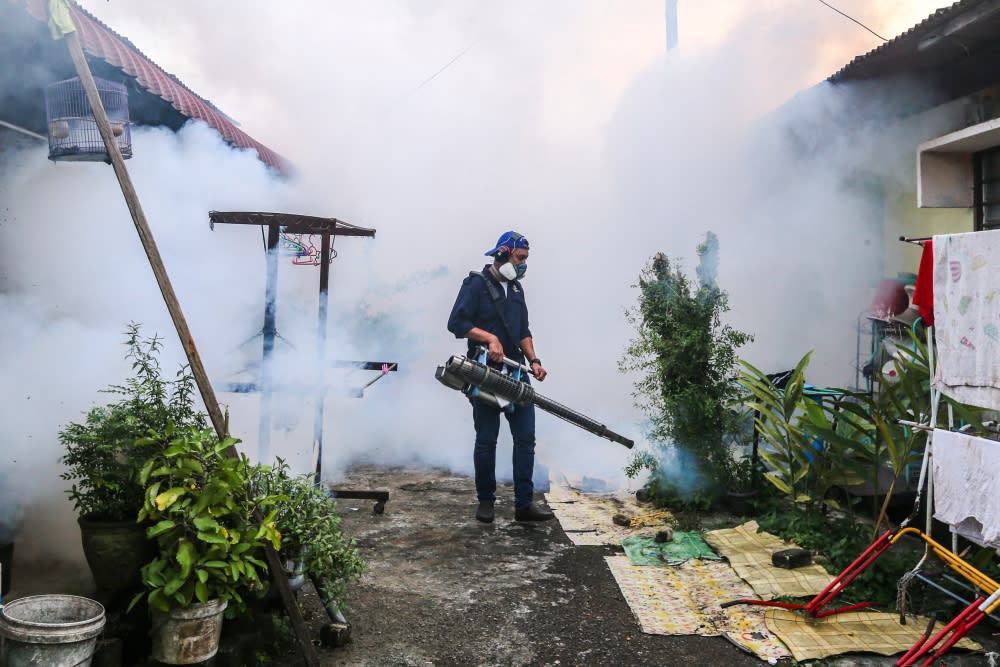
KUALA LUMPUR, June 15 — Malaysia Pest Management Association (MPMA) said Putrajaya’s diesel subsidy rationalisation has led to higher operational costs, which may some consumers to look for cheaper, illegal options — potentially harming their health and providing poor pest control.
In an interview with Malay Mail, MPMA representatives urged the government to provide diesel subsidies for pest control businesses as well, saying such companies play a crucial role in the country’s public health management.
“Of course, the diesel price hike has significantly impacted us. Diesel usage in our line of business is not just limited to vehicle consumption but in our daily treatment, especially for mosquito fogging, we use a lot of diesel as a carrier for the pesticide that we spray.
“When you see a lot of smoke from fogging, that is because of the diesel. So every machine has about four litres of diesel that is mixed with the pesticide. So it is quite a lot in terms of consumption and especially now, with dengue cases on the rise,” MPMA president Regine Lim said.
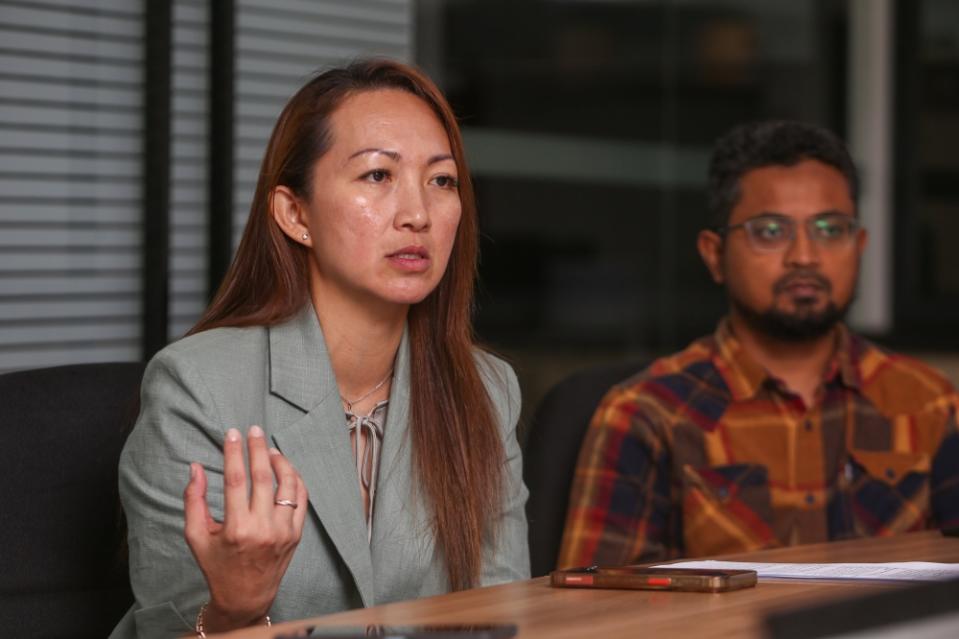
Regine Lim, president of the Malaysia Pest Management Association (MPMA) said diesel usage in their line of business is not just limited to vehicle consumption but in daily treatment as well, especially for mosquito fogging, as they use a lot of diesel as a carrier for the pesticide that is sprayed. — Picture by Choo Choy May
A trained entomologist, Lim said that while there is a water-based carrier, but not as efficient as diesel in terms of coverage as a water-based carrier only reaches minimal height, and will not be efficient for external fogging activities.
Lim stated that although non-diesel alternatives like mineral oil exist, they are significantly more expensive, costing approximately four times more than diesel.
“Previously before the price increase, it was RM8 for four litres. With the price increase, it costs RM13. So it’s about 55 to 60 per cent increase per load or charge,” Lim said.
Jason Jee, MPMA’s secretary, highlighted that the price of pesticides is also susceptible to increases. He said over the past three years, the industry has already experienced a 20 per cent surge in pesticide prices.
“The problem is also because of our currency, since most of the pesticides are imported, mostly from Germany and the US. So when the currency depreciates, we have to fork out more,” he added.
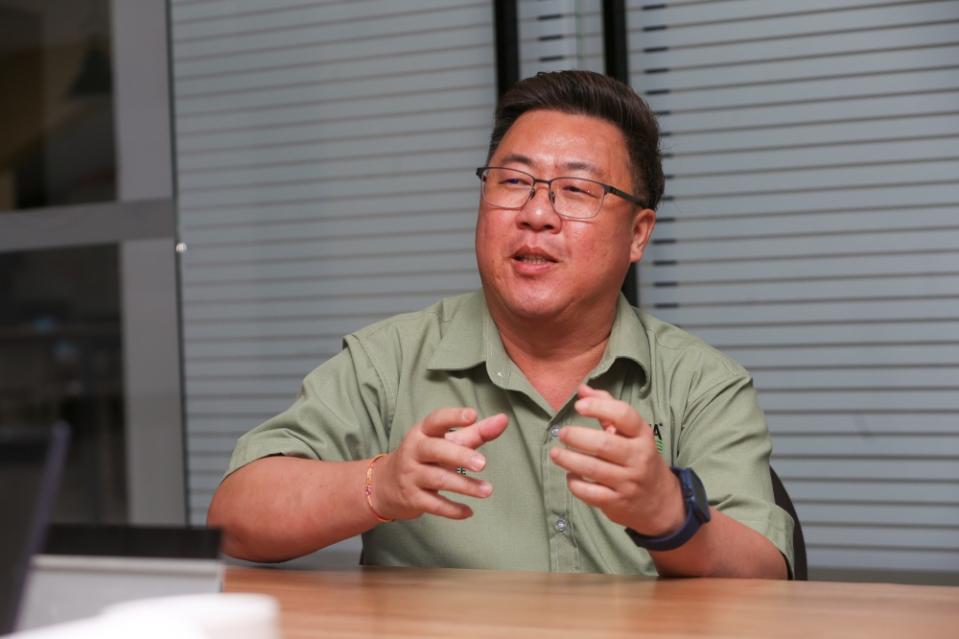
Jason Jee, MPMA’s secretary, highlighted that the price of pesticides is also susceptible to increases. He said over the past three years, the industry has already experienced a 20 per cent surge in pesticide prices. — Picture by Choo Choy May
The three representatives explained that while locally produced pesticides are available, the selection is limited. Developing new formulations and producing effective pesticides is a time-consuming and costly process, restricting the immediate availability of alternative options.
The situation is further exacerbated by the regulatory framework governing the industry, which mandates registration of pesticides in each country where they are intended to be shipped.
As a result, producers are confined to developing chemicals solely for the Malaysian market, which is relatively small.
This limited market size may render the production of new pesticides economically unviable and hence pest control business owners are still left to import.
M. Selvarajan, a committee member of MPMA, said the diesel price announcement caught business owners in the pest control industry off guard, leaving them with no time to prepare revised fee structures.
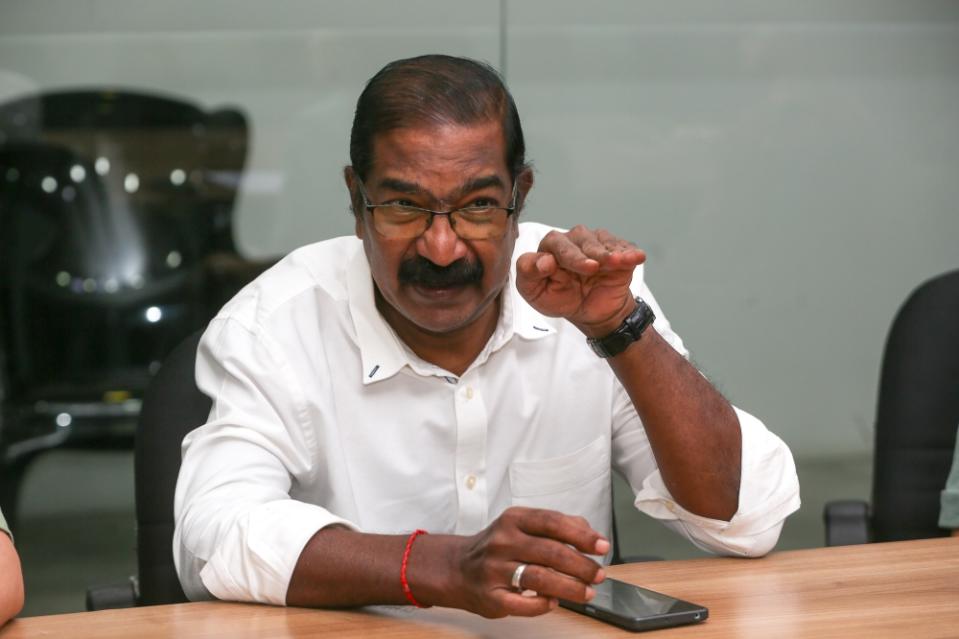
MPMA committee member M. Selvarajan said the diesel price announcement caught business owners in the pest control industry off guard, leaving them with no time to prepare revised fee structures. — Picture by Choo Choy May
Additionally, they are burdened with absorbing the increased costs for existing contracts that were signed before the diesel price hike, as these agreements cannot be immediately renegotiated.
“Most of the time, some customers are also already affected by the Sales and Service Tax (SST). So we have to explain to them that we have no choice but to absorb the additional cost with the diesel price hike,” he added.
Azlan Kamal Hussein Kamal, MPMA’s deputy president, highlighted the limited flexibility pest control business operators have in adopting cost-saving measures for transportation. When working with district health offices, the use of pick-up trucks for fogging operations is mandated.
“Diesel vehicles, we use mostly for Ministry of Health (MOH), the district health offices. As they mention in their tender we must supply or provide pick-up vehicles. They’ve already started pick-up vehicles. Pick-up vehicles in Malaysia automatically means diesel-powered. That is why we don’t have any option when it comes to the district health offices, about diesel usage.
“Other than that, we can use petrol cars such as commercial vans,” he said, adding that the rule is strictly enforced for government projects.
Lim added that travelling is one of the cost-incurring activities for pest control businesses.
“We always try to find a good scheduler to make sure that our team’s travel routes are optimised,” she added.

Azlan Kamal Hussein Kamal, MPMA’s deputy president, highlighted the limited flexibility pest control business operators have in adopting cost-saving measures for transportation. When working with district health offices, the use of pick-up trucks for fogging operations is mandated. — Picture by Choo Choy May
Potential for illegal services, chemicals to flourish
Lim revealed that there are currently 1,400 licensed pest control operators in Malaysia. However, she highlighted a concerning issue.
“Unlicensed ones are double because it is not difficult to start a pest control company.”
She lamented that the lack of enforcement against unlicensed operators poses another significant challenge for legally operating pest control businesses.
“We have approached the Ministry of Agriculture [and Food Security], and the Pesticides Board, but they said they do not have enough manpower and wanted us to come up with proof and evidence,” Selvarajan said, adding the MPMA members had also attempted to adduce the said evidence.
Lim and Selvarajan also voiced apprehensions about the sale of unlicensed pesticides on e-commerce platforms. They fear that these unregulated products could be mishandled by members of the public who lack proper knowledge and training in the safe handling and application of pesticides.
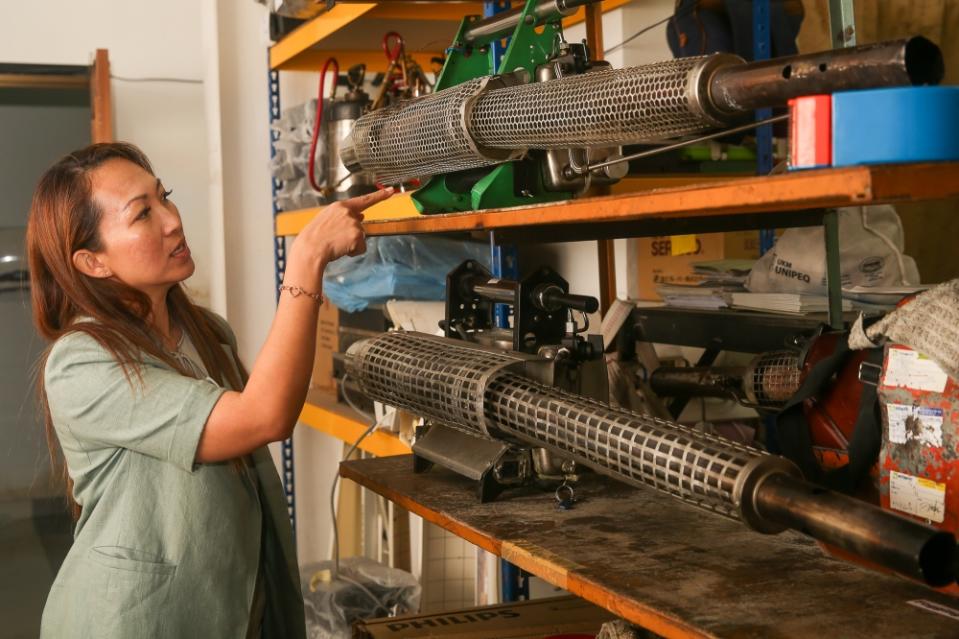
Regine Lim points to the mosquito fogging machine that uses diesel during an interview, June 14, 2024. — Picture by Choo Choy May
“They are selling rat baits and others online. Even spray for lizards or for cockroaches, the chemicals which are concocted, need to be registered with the Ministry of Agriculture, Lim said.
They explained that the pesticides usually come with classifications such as Class 1A 1B, 2,3, and 4, and found that Class 2 and 3 level pesticides are available online.
Lim stated that MPMA had approached two e-commerce platforms regarding the sale of unlicensed pesticides on their platforms. However, they were informed that the platforms have established supplier policies with their vendors, and any potential action would require consultation with higher management levels.
Lim highlighted another burden on the industry — the eight per cent rate SST that came into effect on March 1. Before that, pest control businesses were exempt from the said tax. As of March 1, the industry was listed under maintenance services and subject to the said tax.
She revealed that letters were sent to the Ministry of Finance, the Ministry of Health, and the Ministry of Agriculture and Food Security, requesting a reconsideration of the tax imposition. However, they have yet to receive a response from the authorities.

In an interview with Malay Mail, MPMA representatives urged the government to provide diesel subsidies for pest control businesses as well, saying such companies play a crucial role in the country’s public health management. — Picture by Choo Choy May
“We also submitted a letter to MOH because we are an important public health service provider, and we played an important role during the movement control order (MCO). For instance, when dengue cases surge, we aim to conduct treatment promptly. However, due to the price increase, people may reconsider seeking our services, as they have become much more expensive. This poses a risk of increased mortality,” Lim added.
She also lamented the lack of consistent implementation in imposing the SST, creating an uneven playing field within the pest control industry.
“There is intense competition from companies that include the SST in their service charges. While we have no choice but to pay SST for services above a certain size, the playing field is not level when it comes to diesel costs. We are at a disadvantage compared to companies that are not subjected to SST,” Lim said.
Will the new diesel price affect me?
This only applies to peninsular Malaysia, for now
If you are a private owner of a diesel vehicle, you may be eligible for the Budi MySubsidi Diesel programme
If you are a company using diesel vehicles for public transportation, school buses, local buses, express buses, ambulances, firefighters, hearses and logistics, you can apply for the Subsidised Diesel Control System (SKDS) fleet card
To know more about this developing story, read Malay Mail’s wrap-up of the issue: All you need to know about: Malaysia’s new diesel price of RM3.35 per litre



